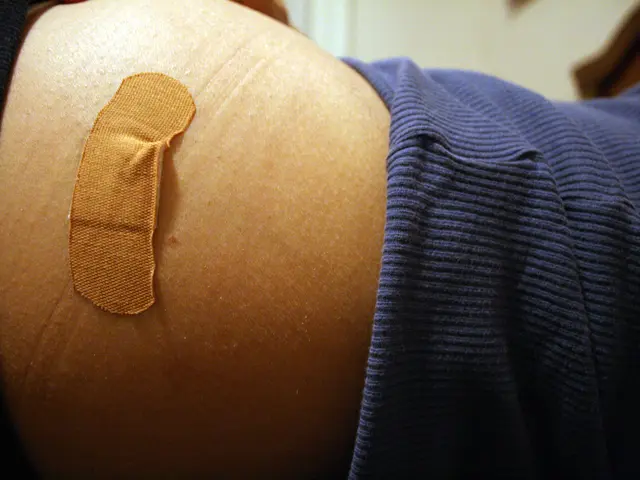Sex and Vaginal Tears: What You Need to Know
Vaginal Tearing During Childbirth Isn't the Only Cause for This Condition to Occur
Let's talk about an awkward subject that many women experience but rarely discuss - vaginal tearing during sex. Whether you're giving birth or engaging in intimacy, it's essential to understand the causes and how to prevent them.
When Tears Happen, and Why
Obstetric tears, which most often occur during first-time vaginal births, are common. These perineum tears result from the pressure exerted when pushing a baby out.
However, non-obstetrical vaginal tearing is relatively uncommon. Causes may include friction from saddles, bicycle accidents, or soap and razors that aren't properly rinsed. But the most common cause is sex, according to Dr. Anna Shope, an OB-GYN at UW Medicine Primary Care at Shoreline.
TheRole of Lube in Prevention
During arousal, your body naturally produces lubrication to reduce friction and protect your delicate skin. This lubrication is crucial for comfortable and pleasurable sexual activity, lowering the risk of tearing. Unfortunately, factors such as hormonal fluctuations, stress, alcohol, and certain medications can affect lubrication levels.
If you're not producing enough lubrication, sexual penetration can become less comfortable and more likely to result in tearing.
Preventive Measures for Vaginal Tears During Sex
To lessen the likelihood of vaginal tears during sexual penetration, use these five strategies:
- Indulge Your Desires: Arousal triggers the body's natural lubrication process, so make sure you're turned on before any sexual activity.
- Foreplay is Key: Don't be shy about needing lots of foreplay. Take your time and let anticipation build.
- Add Some Lube: Use plenty of lube during foreplay and throughout the act. It's always better to err on the side of too much lube, says Dr. Shope.
- Take it Slow: Opt for slow penetration, adjusting speed and pressure as needed to maintain comfort.
- Stay in Control: Maintain control over the degree and pace of penetration, and use the same approach when playing with sex toys.
"Remember that sex should never hurt," says Dr. Shope.
When to Seek Medical Attention
If you experience pain, bleeding, or a burning or stinging sensation when urinating, it might be a sign of vaginal tearing. These symptoms warrant a visit to your OB-GYN, primary care doctor, or emergency room, depending on the severity.
If you believe the tear is minor and superficial, it's essential to look out for signs of infection, such as increased pain, swelling, or discharge. In such cases, visit your doctor to ensure proper healing.
Like any wound, care for your vaginal tear with gentle cleaning, but show extra tender loving care. Remember, your body's blood flow ensures quick and efficient healing. Once you no longer feel discomfort, you should be good to go!
- Dr. Anna Shope, an OB-GYN at UW Medicine Primary Care at Shoreline, states that sex is the most common cause of non-obstetrical vaginal tearing, emphasizing the importance of understanding this issue and its prevention.
- In a bid to prevent vaginal tearing during sex, Dr. Shope suggests using plenty of lube during foreplay and throughout the act, taking it slow, maintaining control over penetration, indulging desires to ensure arousal, and ensuring key foreplay to build anticipation.







